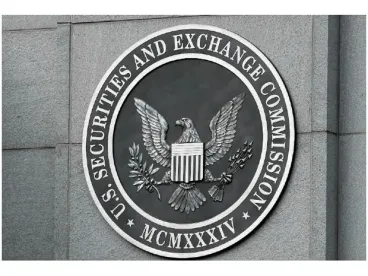The U.S. Securities and Exchange SEC (SEC) recently announced a settlement in its first-ever enforcement action alleging that an engineering firm used confidentiality agreements that improperly restricted employees’ ability to discuss internal company investigations with the federal government. The SEC’s enforcement action sends a warning that it will be scrutinizing confidentiality agreements that “impede an individual from communicating directly with the SEC staff about a possible securities law violation.”
The settlement stems from the company’s use of a confidentiality statement in its internal investigations. During investigations, company investigators (who were not attorneys) asked employee-witnesses to agree to the following terms:
I understand that in order to protect the integrity of this review, I am prohibited from discussing any particulars regarding this interview and the subject matter discussed during the interview, without the prior authorization of the Law Department. I understand that the unauthorized disclosure of information may be grounds for disciplinary action up to and including termination of employment.
Although the SEC never found any instances in which the company actually enforced the confidentiality statement, the SEC faulted the company for broadly prohibiting all unapproved disclosures, which the SEC argued illegally restricted employees from reporting securities violations to the SEC. As part of the settlement, the company agreed to pay a penalty of $130,000, narrow its confidentiality statement and inform employees who signed the original confidentiality statement of the terms of the settlement.
The SEC’s aggressive approach to this case should prompt employers to review their confidentiality agreements to ensure that they do not run afoul of the SEC’s rules as well as federal and state whistleblower protections in general. While confidentiality agreements remain a viable option, employers must be careful about the specific language and methods of enforcement they use. In some circumstances, employers might need to add carve-out language that explicitly allows employees, without first seeking company approval, to discuss possible violations of federal law with the relevant government entities.
Employers also should note that the SEC might perceive vague oral instructions to employees during investigations as implicitly and improperly discouraging whistleblowing. Additionally, employers should note that using an attorney, rather than a non-attorney investigator, to conduct internal investigations might preserve confidentiality related to investigations through the attorney-client privilege.
The SEC’s recent targeting of overbroad confidentiality agreements is just one example of a wider governmental focus on employer retaliation and whistleblower claims. Other agencies are actively engaged in enforcement efforts based on similar positions. For instance, just last month, we highlighted the U.S. Department of Labor’s latest regulatory protections for whistleblowing employees. Similarly, the National Labor Relations Board often views confidentiality clauses as tending to chill the rights of employees to communicate with each other about workplace matters, while the Equal Employment Opportunity Commission tends to view such language as illegally discouraging workers from filing complaints. Faced with agencies’ increased efforts to strengthen and enforce whistleblower protections, employers should ensure their applicable policies and practices comply with federal and state whistleblower protection and anti-retaliation laws.





 />i
/>i
